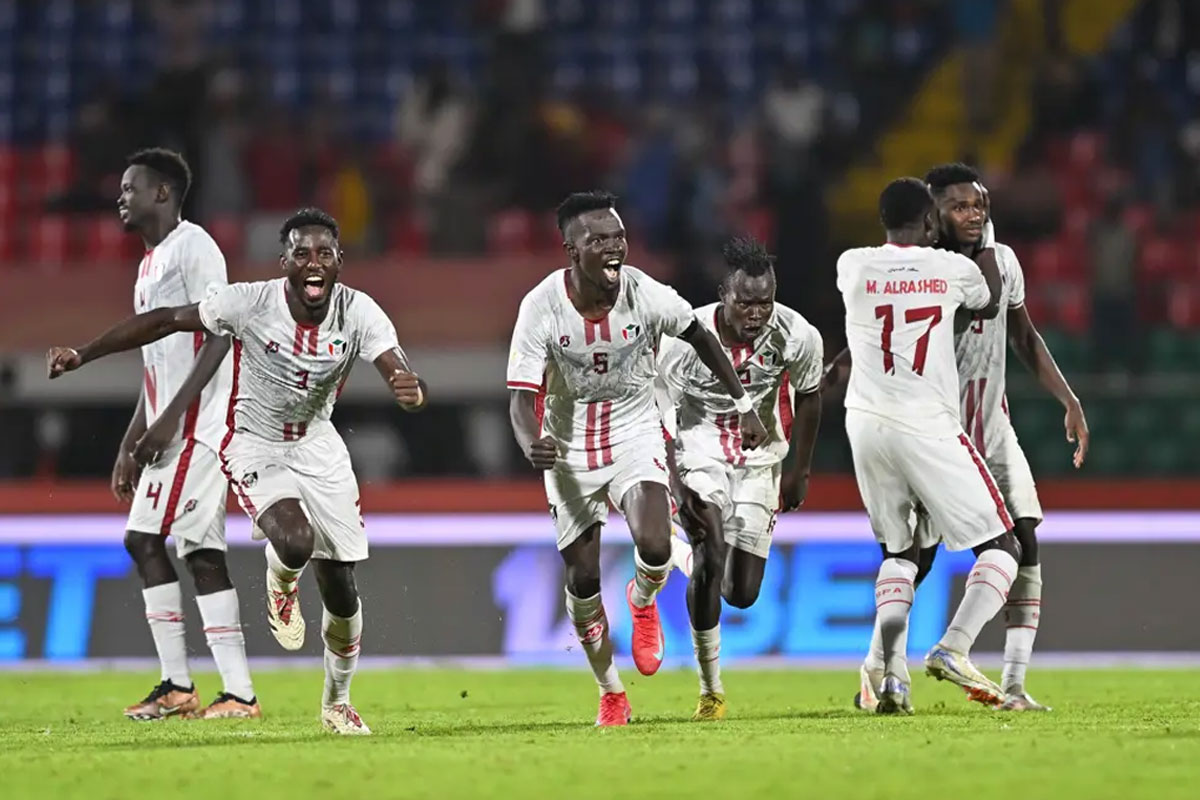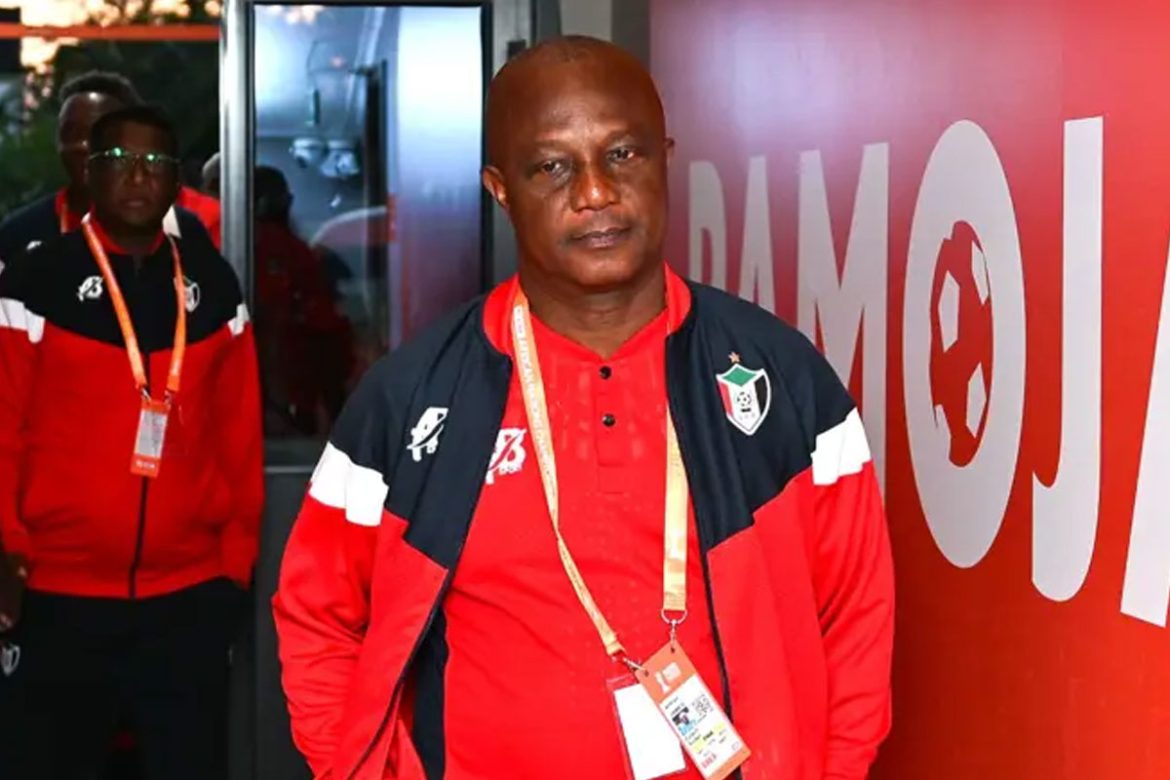Ghanaian coach James Kwesi Appiah has crafted many impactful chapters in African football, but few resonate as deeply as the one currently unfolding in Sudan. As they prepare to compete in the semi-finals of the TotalEnergies African Nations Championship (CHAN) PAMOJA 2024 against Madagascar on Tuesday, they stand as a beacon of hope.
Amid a brutal civil war displacing over 12 million people and devastating cities, the 64-year-old Appiah has metamorphosed Sudan’s CHAN team and the senior national team, the Falcons of Jediane, into one of the continent’s most compelling stories.
Sudan has not only reached the semi-finals of CHAN PAMOJA 2024 but has also qualified for the 2025 Africa Cup of Nations in Morocco, surpassing even Ghana. They proudly hold the top position in a competitive 2026 FIFA World Cup qualifying group that includes giants like Senegal and DR Congo.
In a nation where the domestic league is suspended, players live as nomads, and home fixtures are held outside the country, their achievements border on the miraculous.

A Career of Firsts
Appiah’s journey is one of resilience and triumph. As a player, he was part of Ghana’s victorious 1982 Africa Cup of Nations squad in Libya, claiming the Black Stars’ fourth continental title. As a coach, he made history as the first black African to lead Ghana to a FIFA World Cup in 2014, guiding them to Brazil. He also contributed as assistant coach in 2010, when Ghana achieved quarter-final success—a remarkable feat that remains among Africa’s best, alongside Cameroon, Senegal, and Morocco.
Despite this impressive legacy, Appiah remains focused on higher aspirations as they face Madagascar. “Once you are in a tournament, you must aim for the trophy,” Appiah shared. “I don’t believe in participating just to add numbers. If you enter, you must go all out to win.”
This unwavering belief has followed him from Accra to Khartoum, now to Sudan’s temporary homes across Saudi Arabia, Mauritania, and Libya.
Sudan’s Journey in the Darkest Times
The war that erupted in April 2023 forced Sudan’s league to close, leading top clubs Al Hilal and Al Merrikh to integrate into the Mauritanian league to keep their players active.
Many squad members have faced unimaginable loss, with family members affected by conflict, and loved ones scattered across refugee camps in Chad and South Sudan. “Most of the time, we receive messages that one of the boys has lost a relative,” Appiah noted. “But I always remind them: you are the ones who can bring smiles to your people. Even when the fighting continues, when we play, sometimes the guns go silent for a week or two.”
This powerful symbolism depicts football as a fragile sanctuary amid turmoil. For Sudanese people everywhere—from Omdurman to Cairo and the diaspora in Europe and Australia—this team has emerged as a source of unity.
Eliminating Ghana and Defying Giants
A poignant chapter of this journey is that Appiah’s Sudan eliminated his own country, Ghana, in the Afcon 2025 qualifying. A goalless draw in Accra was followed by a stunning 2-0 victory in Benghazi, marking Ghana’s first failure to reach the Nations Cup in 20 years. “As a Ghanaian, of course, I was sad,” Appiah admitted. “But once you are a professional, you focus on your responsibilities.”
Sudan’s AFCON qualification followed a nerve-wracking campaign. Despite a 4-0 defeat to Niger, they held Angola to a 0-0 draw, securing second place in their group. The joy of their victory echoed wildly as “everybody put their guns down and danced in the streets,” Appiah recalled. Their remarkable journey to the CHAN semi-finals underscores their resilience.
Against last edition’s runners-up Algeria, Sudan fought to a 1-1 draw before triumphing 4-2 on penalties, with goalkeeper Mohamed Abooja becoming the hero. They now stand just one game away from their first-ever CHAN final.
Coaching Philosophy: Belief Above All
Appiah’s methods transcend tactics. “I tell the players to feel like they are Messi or Ronaldo,” he explained. “They should never belittle themselves. Wherever we play, whether we have supporters or not, we must see it as home.”
His focus on psychology has lifted players like Mohamed Abdulrahman, Abuaagla Abdallah, and Ramadan Agab into leaders, while diaspora talents like Abdelrahman Kuku—raised in Australia and currently playing in Libya—have enriched the squad.
With training camps in Saudi Arabia providing modern facilities and exposure, the Falcons are fitter, tactically sharper, and mentally more resilient than ever.
A Mission Bigger Than Football
For Appiah, football embodies a mission transcending results. “Maybe through football, the war might eventually come to an end.”
News Source: CAF Online.

